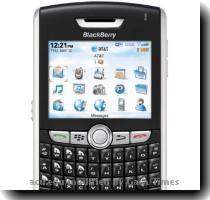UAE, Saudis to block BlackBerry messaging and Web, citing national security, social concerns
By Adam Schreck, APSunday, August 1, 2010
UAE, Saudi Arabia to block key BlackBerry services
DUBAI, United Arab Emirates — The UAE said Sunday it will block key features on BlackBerry smart phones, citing national security concerns because the devices operate beyond the government’s ability to monitor their use. Neighboring Saudi Arabia quickly indicated it planned to follow suit.
The decision could prevent hundreds of thousands of users in the Mideast country from accessing e-mail and the Web on the handsets starting in October, putting the federation’s reputation as a business-friendly commercial and tourism hub at risk.
Blackberry data is encrypted and routed overseas, and the measure could be motivated in part by government fears that the messaging system could be exploited by terrorists or other criminals who cannot be monitored by the local authorities.
However, analysts and activists also see it as an attempt to more tightly control the flow of information in the conservative country, a U.S. ally that is home to the Gulf business capital Dubai and the oil-rich emirate of Abu Dhabi.
Within hours of the announcement, a telecommunications official in neighboring Saudi Arabia said the desert kingdom would begin blocking the BlackBerry messaging service starting later this month. The Saudi official, who spoke on condition of anonymity because he is not authorized to talk to the media, said the country’s telecommunications regulator would issue a statement on the move soon.
Like in Saudi Arabia, government censors in the UAE already routinely block access to websites and other media deemed to carry content that runs contrary to the nation’s conservative Islamic values or could stoke political unrest.
In announcing the ban, the UAE telecommunications watchdog said it will suspend BlackBerry messaging, e-mail and Web browsing services starting October 11. It was unclear if the ban would affect only local users or foreign visitors with roaming services as well.
Regulators say the devices operate outside of laws put in place after their introduction in the country, and that the lack of compliance with local laws raises “judicial, social and national security concerns for the UAE.”
The government said it is singling out the BlackBerry, and not other phones that can access e-mail and the Web, because the devices are the only phones in the country that automatically send users’ data to servers overseas.
Unlike many other smart phones, BlackBerry devices use a system that updates a user’s inbox by sending encrypted messages through company servers abroad, including RIM’s home nation of Canada.
Users like the system because it is seen as more secure, but it also makes BlackBerry messages far harder to monitor than ones sent through domestic servers that authorities could tap into, analysts say.
“This is the irony, that it’s the device with the highest security features,” said Simon Simonian, an analyst at Dubai-based investment bank Shuaa Capital who follows telecommunications. “These same security features corporations like have become an issue of national security for the government.”
Emirati authorities are eager to portray an image of the country as a safe, stable society free from the extremism found elsewhere in the region. They have taken steps to crack down on terror financing and efforts by neighbor Iran to sidestep international sanctions over its nuclear program.
Regulators said they have sought compromises with BlackBerry maker Research in Motion on their concerns, but failed to reach an agreement on the issue.
“With no solution available and in the public interest … Blackberry Messenger, Blackberry E-mail and Blackberry Web-browsing services will be suspended until an acceptable solution can be developed and applied,” Telecommunications Regulatory Authority director-general Mohamed al-Ghanim said in a statement carried on state news agency WAM.
“The TRA notes that Blackberry appears to be compliant in similar regulatory environments of other countries, which makes noncompliance in the UAE both disappointing and of great concern,” he added.
A spokeswoman for Research in Motion said the Canadian company had no immediate comment.
Other countries, including India and the Gulf state of Bahrain, have also raised concerns about BlackBerry messaging features, but have not decided to block them outright.
“The UAE doesn’t want to take any chances and they want to monitor what is going on in the country,” Simonian said.
Research in Motion said in a statement last week it “respects both the regulatory requirements of government and the security and privacy needs of corporations and consumers.”
The company declined to disclose details of talks it has had with regulators in the more than 175 countries where it operates, but defended its phones’ security features as “widely accepted” by customers and governments.
“This is the irony, that it’s the device with the highest security features,” Simonian said. “These same security features corporations like have become an issue of national security for the government.”
Etisalat and Du, the UAE’s two state-run phone companies, said they would comply with the directive and are working on alternative services for their BlackBerry customers.
RIM does not disclose the number of BlackBerry users in the country.
Simonian, the Shuaa analyst, estimated that there are “hundreds of thousands” of BlackBerry users in the country, but likely fewer than the half million users cited by local media.
Associated Press Writer Abdullah al-Shihri in Riyadh, Saudi Arabia, contributed to this report.
Tags: Canada, Communication Technology, Computer And Data Security, Computer Hardware, Computing And Information Technology, Consumer Electronics, Dubai, Government Regulations, Industry Regulation, Middle East, Mobile Communications, National Security, North America, Products And Services, Saudi Arabia, United Arab Emirates

